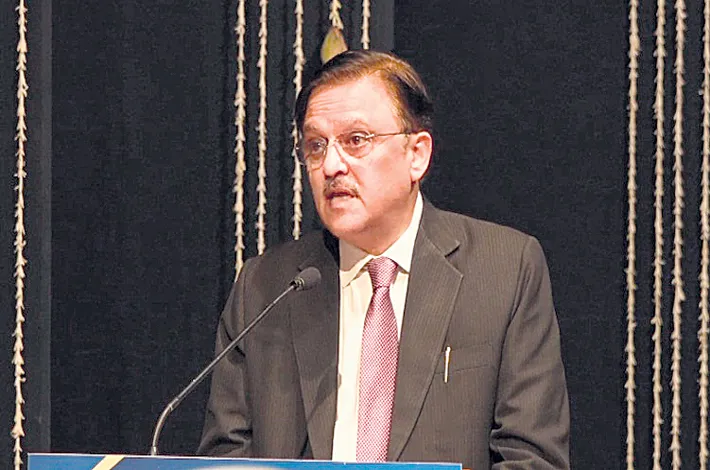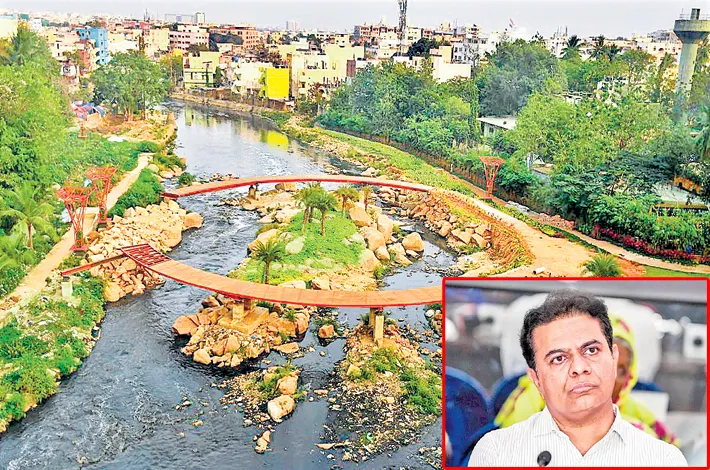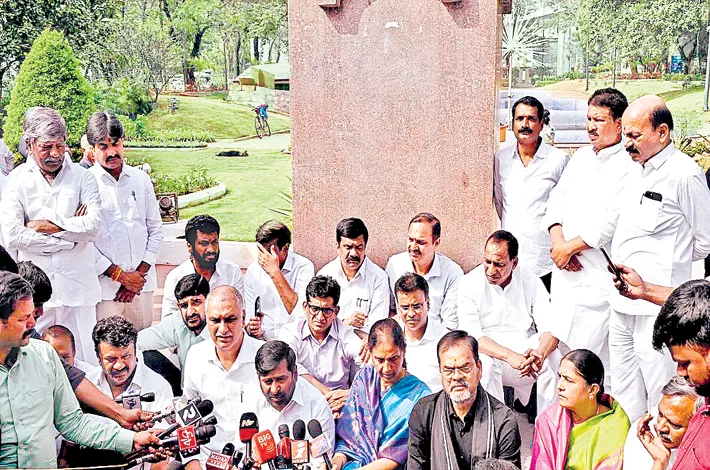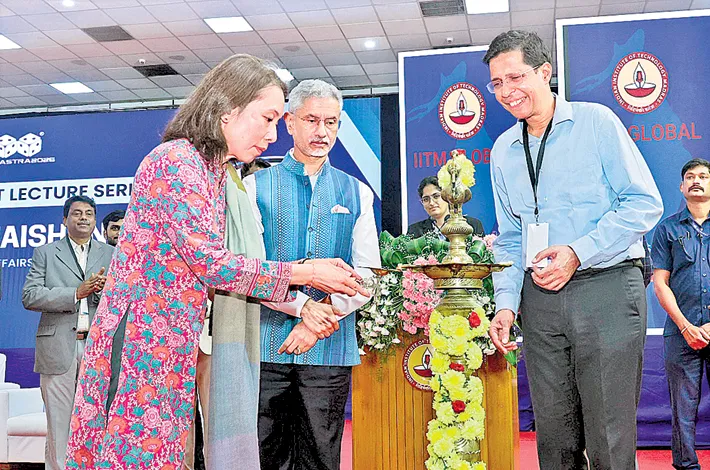Justice Abhay Oka flags concerns on long pendency of cases
27-03-2025 12:00:00 AM

*States the judiciary must acknowledge its flaws and that public cannot be faulted for having no faith in judicial system
Justice Oka's speech centred on trial courts across the country which, in the judge's opinion, were neglected in the past 75 years as "subordinate" or "lower" courts
metro india news I hyderabad
Justice Abhay S Oka of the Supreme Court came hard on the judicial system and found fault with its functioning. The state of judicial infrastructure across the country and suffering of under trial prisoners due to delay in disposal of cases is abysmal, he stated while delivering a lecture at an event organized by the Supreme Court Advocates-on-Record Association at Bharat Mandapam in celebration of 75 years of the Constitution. The topic of the lecture was "Access to Justice and 75 Years of Constitution - Bridging the Gap between Judiciary and Citizens".
Justice Oka's speech centred on trial courts across the country which, in the judge's opinion, were neglected in the past 75 years as "subordinate" or "lower" courts. It was highlighted that trial courts are courts that common man can access, and the pendency before the courts being as high as 4.54 crore cases, there is what one calls "gap" between the judiciary and citizens. "Last 75 years, we committed 1 fundamental mistake...we neglected our trial and district courts by describing them as subordinate/lower courts."
"My view is that that statement may not be substantially correct. If we have pendency of 4.54 crore cases, out of which 25-30% are 10 yrs old, can we still believe that common man has great faith in this institution? We must acknowledge our flaws and deficiencies", the judge opined.
Another reason behind pendency of cases, the judge said, was a stagnant judge-to-population ratio. "Unless we increase judge to population ratio, we may be talking about pendency even on completion of 100 yrs of Constitution. It's not enough to create posts. We need courts, staff, hardware and software...it's a massive thing to be done."
Justice Oka also attributed the long pendency of cases to delayed disposal of cases, like bail matters. Referring to the suffering of under trial prisoners and their family members, the judge raised concerns about cases where after prolonged incarceration, an accused is ultimately acquitted for lack of evidence. "One issue is why no bail in obvious cases. There are cases where bail is denied.
Trial takes years. Maybe after 10 years of incarceration, court grants acquittal because there is no evidence. We have to think of consequences. Entire family of a criminal suffers. Someday some litigant is going to question us - when there was no evidence against me, why I was detained for 10-12 yrs? Or even 3-4 yrs? He is going to ask us how we will compensate not only him but also his family who suffered extensively", Justice Oka observed.
Lamenting the state of judicial infrastructure, Justice Oka further pointed out that labor and industrial courts are most neglected when it comes to infrastructure. The judge, critiquing the legal infrastructure, remarked that often, there is no proper cross-examination of eye-witnesses by legal aid lawyers. "Because of neglect of legal aid lawyers, we may be convicting persons against whom there is no real evidence", Justice Oka expressed. "We won't be able to make any headway unless there is 1 Public Prosecutor attached to only 1 court" the judge added, while regretting the availability of only 1 PP for 2-3 courts.
Speaking on criticism of the judiciary on media (electronic, print and social) and television, the judge expressed that unless criticism is done only for the sake it and amounts to contempt, the judiciary must take it in stride and reflect on whether it's going wrong somewhere.
It was added that earlier, criticism of the judiciary used to take place within "4 walls" and/or corridors of courts, but electronic media has brought a major change leading to criticism being heard loud and clear.
Before closing, Justice Oka reflected on adjournment culture, lawyers' abstention from court work and bulky pleadings, counter-affidavits and judgments. It was cautioned that abstention from work by lawyers even before 3-4 different benches of a High Court can cause hundreds of bail matters to get adjourned for months, while trials remain pending for years.
Pertinently, the judge remarked that lawyers' abstention from court work is plainly criminal, considering the loss caused to litigants. Concluding, Justice Oka called for members of the Bar and the judiciary to ensure that precious court time is not wasted.








